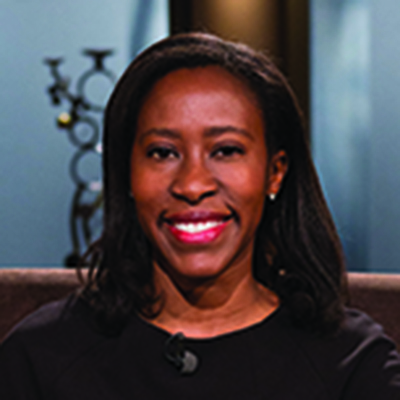Profiles in Perseverance — Erika U. Augustine, MD

This profile is part of the story Women Unlimited: Closing the Gender Gap in Medicine and Science.
As a high-school student, Erika Augustine was in the Science and Technology Entry Program (STEP), a University of Rochester School of Medicine and Dentistry pipeline program aimed at attracting underrepresented minority students into translational research careers.
Gender diversity was not a major concern as she made her plans to become a child neurologist.
“The university made a commitment to developing that pipeline a long time ago, so I knew this was an environment that valued diversity and actually took actions and steps to try to address it,” she says. “I didn’t have the sense ever that this was a place I didn’t belong from a gender standpoint.”
As the years went on, Augustine transitioned from being a fellow at the University of Rochester Medical Center to a faculty member.
“I’m much more aware of my gender now,” she says. “There are times when I am the only woman in the room.”
Maybe that’s in an advisory committee meeting. Or in a leadership group.
But those times seem to be fewer more recently, says Augustine, in large part because of the continued and increased attention on diversity initiatives that impact employment and promotion decisions, student mentoring, and implicit biases that may affect the way colleagues work together.
Augustine, who specializes in the care of children with movement disorders, has been awarded multiple sources of grant support for training, career development, and clinical research. That research focuses on developing novel therapeutics for Batten diseases, a group of rare pediatric neurodegenerative disorders.
As diversity officer with a national career development program for child neurologists funded by the National Institutes of Health, Augustine pays close attention, as do her colleagues in the program, to how others perceive those in charge.
“We are definitely striving to put forth balanced, representative images of our leadership,” she says. “We are conscious of making sure young researchers resonate with the people they see as leaders.”
Just as she was made aware of career-development opportunities outside the university, Augustine encourages others to apply for national programs such as the Association of American Medical Colleges’ leadership-development seminars for women.
Literature suggests diverse teams produce better outcomes, and that diversity, Augustine points out, inevitably needs frames of reference from females.
“It’s an important component of being and becoming a first-rate, leading-edge institution,” she says. “If we do not fully represent a broad spectrum of origins and perspectives, then based on the science, we have not yet reached our full potential.”

